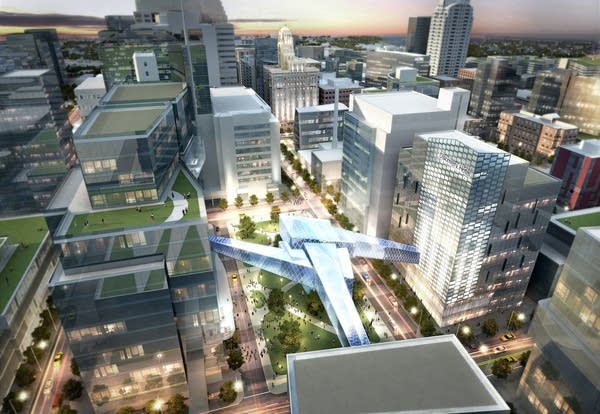Will millennials dig Rochester's ambitious downtown plan?

Attracting young professionals to Rochester, Minn., is critical to the success of the massive Destination Medical Center project. Here, an artist rendering depicts the proposed Discovery Square in downtown as part of the project.
Courtesy of Perkins Eastman
Go Deeper.
Create an account or log in to save stories.
Like this?
Thanks for liking this story! We have added it to a list of your favorite stories.


